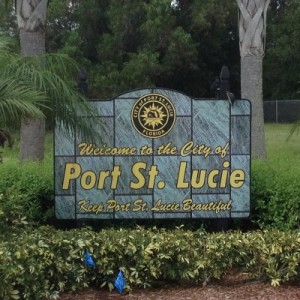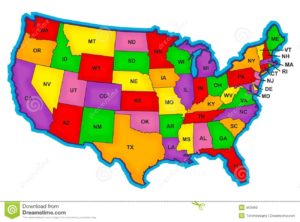
Fannie Mae Foreclosure Properties
Fannie Mae may have the following or similar verbiage in their agreements indicating once the property is closed the Real Estate Transaction is final. Essentially if the real estate taxes increase after the closing due to the removal of Homestead, Fannie Mae, will not reimburse for the difference in proration after the closing. Fannie Mae does not always file the real estate Deed right away with the St Lucie County Property Appraiser office. Fannie Mae does not pay transfer taxes on deeds. So the sale which shows Fannie Mae as an owner may not show up until they sell the property to the new Buyer. At this time, when the deed is being recorded the homestead may be removed resulting in an increase in the property taxes. Most often the new property tax statement is not for the current year at the closing and for that reason the previous year tax statement will be used to prorate taxes between Seller and Buyer on the settlement statement.
Although the tax office always indicates that Port St Lucie Homestead Exemption is not transferable, which is correct in a sense, but in some occasions the new home buyer will enjoy the previous owner’s exemption. This is how it works; the Homestead exemption has a deadline to file and new owners have until the end of the year to comply with filing for a homestead. Now, what happens if you buy a home that has Homestead Exemption during the month of January? First of all, if the previous owner buys a new home he has to wait until the end of the year to apply for homestead, which means his homestead will stay with the home he sold till county change that in new tax cycle. This means his homestead will stay on his prior house until around August when the county reassesses the taxes and since the homeowner with homestead doesn’t own the property anymore, they will remove his homestead at that time. Meanwhile, the new homeowner will pay the taxes that were calculated to the previous owner, including the homestead benefit, till August.
In many occasions and especially when prices are on the rise, the county will assess the new home buyer’s taxes higher than before. At this time, the original tax base increases when the homestead is removed. This will have an increase in the new home buyer’s taxes till next tax cycle when their homestead has taken effect.
What does this mean to the buyer? This means your property taxes can go up once the Homestead is removed for the year of purchase leaving you no alternative but, to pay the difference in real estate taxes. This also means if your escrow was funded on last year’s tax rate your mortgage will go up to make up the difference in Escrow shortage.
Please Note: The property taxes could become complicated at times like any other tax related issues. The purpose of this article is for a general informational only, the author is not a tax expert. All home buyers should consult a tax advisor or a closing attorney for information regarding property taxes during closing.
Following is an example of an actual verbiage used in the Fannie Mae’s Addendums:
10. Closing Costs and Adjustments:
(a) The Purchaser and the Seller agree to prorate the following expenses as of the Settlement Date: real estate taxes and assessments, common area charges, condominium or planned unit development or similar community assessments, cooperative fees, maintenance fees and rents, if any. In determining prorations, the Settlement Date shall be allocated to the Purchaser. Payment of special assessment district bonds and assessments, and payment of homeowner’s association or special assessments shall be paid current and prorated between the Purchaser and the Seller as of Settlement Date with payments not yet due and owing to be assumed by the Purchaser without credit toward Purchase Price. The Property taxes shall be prorated based on an estimate or actual taxes from the previous year on the Property. All prorations shall be based upon a 30-day month and all such prorations shall be final. The Seller shall not be responsible for any amounts due, paid or to be paid after closing, including but not limited to, any taxes, penalties or interest assessed or due as a result of retroactive, postponed or additional taxes resulting from any change in use of, or construction on, or improvement to the Property, or an adjustment in the appraised value of the Property. In the event the Seller has paid any taxes, special assessments or other fees and there is a refund of any such taxes, assessments or fees after closing, and the Purchaser as current owner of the Property receives the payment, the Purchaser will immediately submit the refund to the Seller.
(b) Fannie Mae is a congressionally chartered corporation and is exempt from realty transfer taxes pursuant to 12 U.S.C. 1723a(c)(2) and will not pay realty transfer taxes regardless of local practice. Any realty transfer taxes due on the sale as a result of the conveyance of the Property will be the sole responsibility of the Purchaser.
(c) The Seller shall pay the real estate commission per the listing agreement between the Seller and the Seller’s listing broker.
(d) Purchaser shall release Seller from any and all claims arising from the adjustments or prorations or errors in calculating the adjustment or prorations that are or may be discovered after closing. THE PURCHASER AGREES TO EXECUTE AND DELIVER TO THE SELLER AT CLOSING FANNIE MAE’S Tax Proration Agreement 03/2011.
10. Closing Costs and Adjustments: (a) The Purchaser and the Seller agree to prorate the following expenses as of the Settlement Date: real estate taxes and assessments, common area charges, condominium or planned unit development or similar community assessments, cooperative fees, maintenance fees and rents, if any. In determining prorations, the Settlement Date shall be allocated to the Purchaser. Payment of special assessment district bonds and assessments, and payment of homeowner’s association or special assessments shall be paid current and prorated between the Purchaser and the Seller as of Settlement Date with payments not yet due and owing to be assumed by the Purchaser without credit toward Purchase Price. The Property taxes shall be prorated based on an estimate or actual taxes from the previous year on the Property. All prorations shall be based upon a 30-day month and all such prorations shall be final. The Seller shall not be responsible for any amounts due, paid or to be paid after closing, including but not limited to, any taxes, penalties or interest assessed or due as a result of retroactive, postponed or additional taxes resulting from any change in use of, or construction on, or improvement to the Property, or an adjustment in the appraised value of the Property. In the event the Seller has paid any taxes, special assessments or other fees and there is a refund of any such taxes, assessments or fees after closing, and the Purchaser as current owner of the Property receives the payment, the Purchaser will immediately submit the refund to the Seller. (b) Fannie Mae is a congressionally chartered corporation and is exempt from realty transfer taxes pursuant to 12 U.S.C. 1723a(c)(2) and will not pay realty transfer taxes regardless of local practice. Any realty transfer taxes due on the sale as a result of the conveyance of the Property will be the sole responsibility of the Purchaser. (c) The Seller shall pay the real estate commission per the listing agreement between the Seller and the Seller’s listing broker. (d) Purchaser shall release Seller from any and all claims arising from the adjustments or prorations or errors in calculating the adjustment or prorations that are or may be discovered after closing. THE PURCHASER AGREES TO EXECUTE AND DELIVER TO THE SELLER AT CLOSING FANNIE MAE’S Tax Proration Agreement 03/2011.
 Guide to Purchasing Homes Part II
Guide to Purchasing Homes Part II

 Guide to Purchasing Home Part I
Guide to Purchasing Home Part I Mortgage Problems for Home Buyers
Mortgage Problems for Home Buyers
 Important Tips for First Time Home Buyers
Important Tips for First Time Home Buyers Buying Residential Income Producing Properties
Buying Residential Income Producing Properties Pre-construction Investments
Pre-construction Investments



